2016 Chevrolet Volt: Car Seat Check

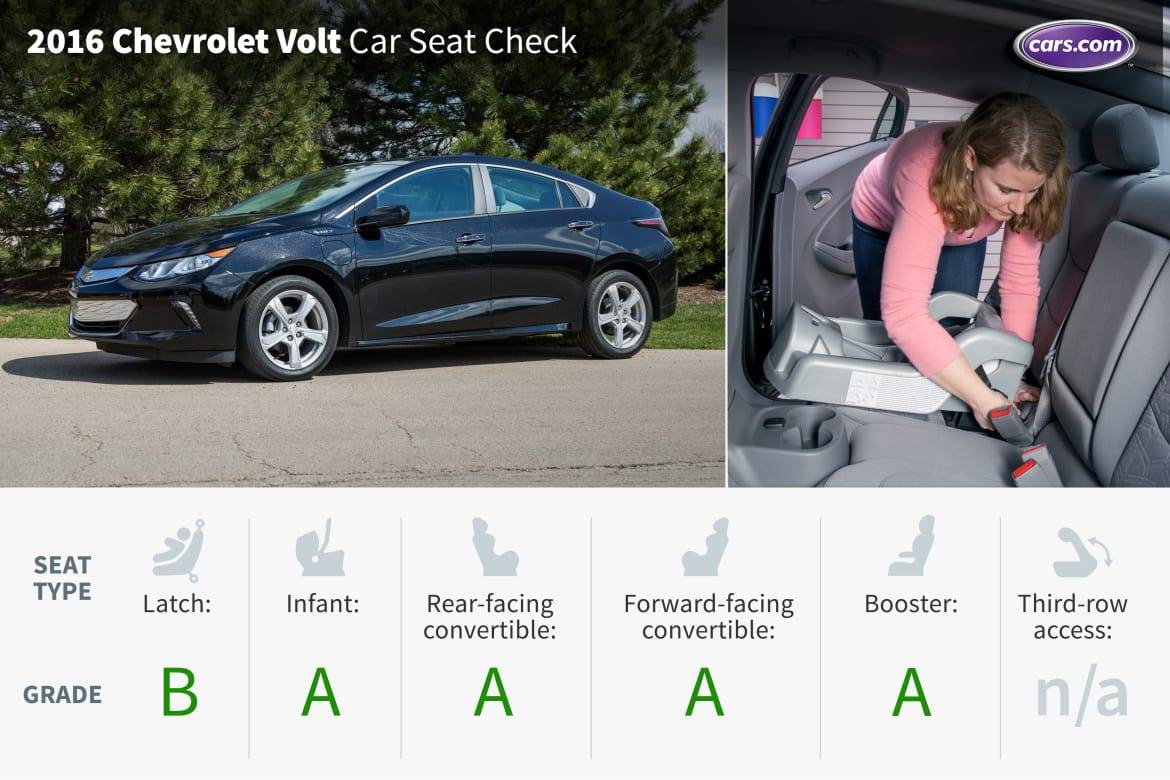
CARS.COM — Chevrolet redesigned its plug-in Volt for 2016, and although the new Volt’s greater range and fuel economy are big news, so too is its backseat. For 2016, the Volt has five seats, instead of four, with a new three-position bench in back. While there still isn’t room for three car seats (the new middle position is tiny), a half-inch of additional legroom compared with the 2015 Volt goes a long way; there was plenty of room for two car seats in our test — even rear-facing car seats that eat up legroom.
How many car seats fit in the second row? Two
What We Like
- The two sets of Latch anchors sit deep within the seat bight behind slits in the seat upholstery. Accessing them wasn’t too difficult.
- The infant seat installed easily and we did not need to move the front passenger seat forward to fit it. Caregivers should note that the seat bottom cushion is angled toward the seatback, so some may need to use a rolled towel or swim noodle to ensure the car seat sits at the proper angle.
- In rear-facing mode, the convertible went in easily and fit well. There was no need to move the front passenger seat forward.
- In forward-facing mode, the convertible installed without a problem; the top tether anchor was easy to connect to.
- The booster seat fit well nestled into the deep seat bottom cushion. The buckles are on stable bases and stick up high, making them easier for small hands to grasp and use.
What We Don’t
- Although the three tether anchors on the rear seatbacks are easy to use, they aren’t labeled and parents might confuse them with nearby cargo hooks.
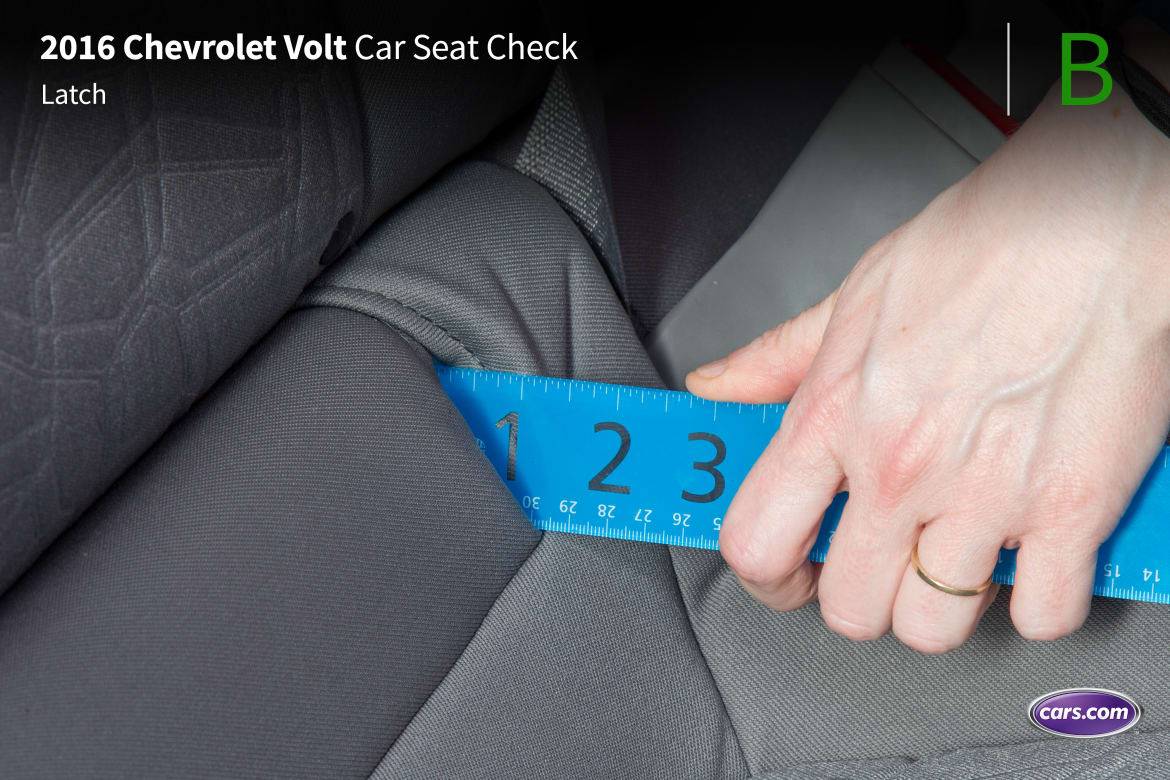
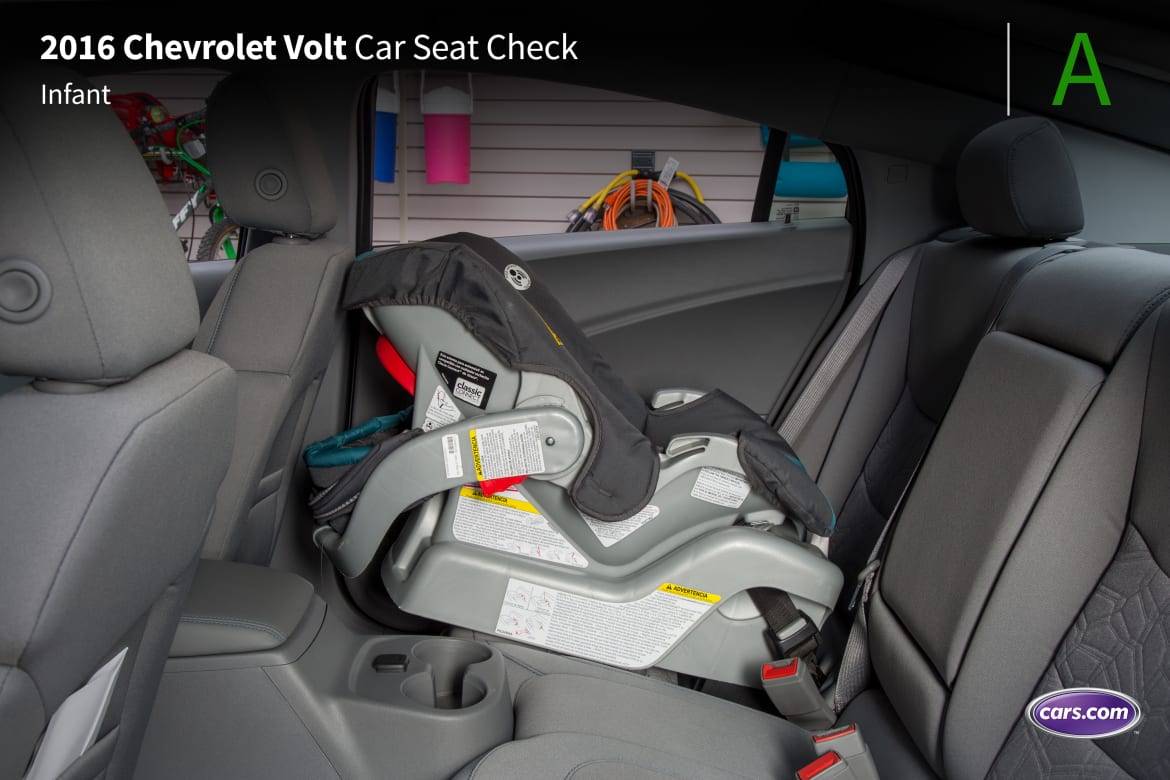
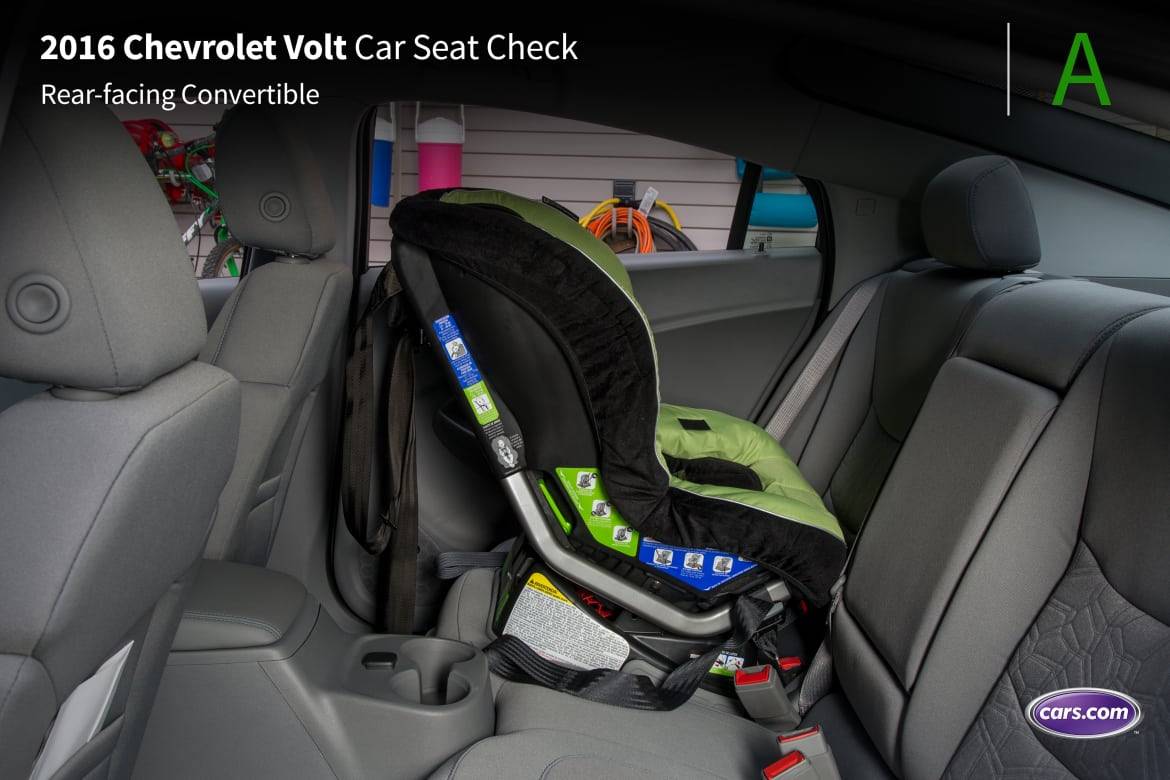
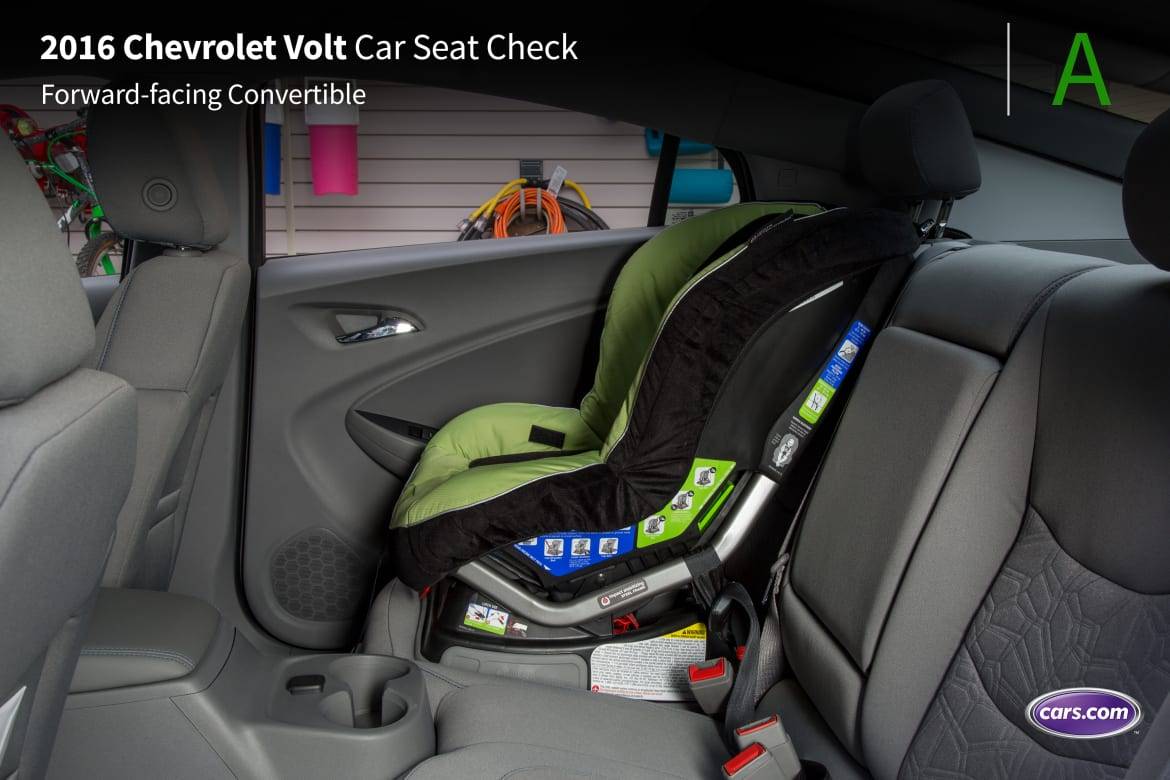
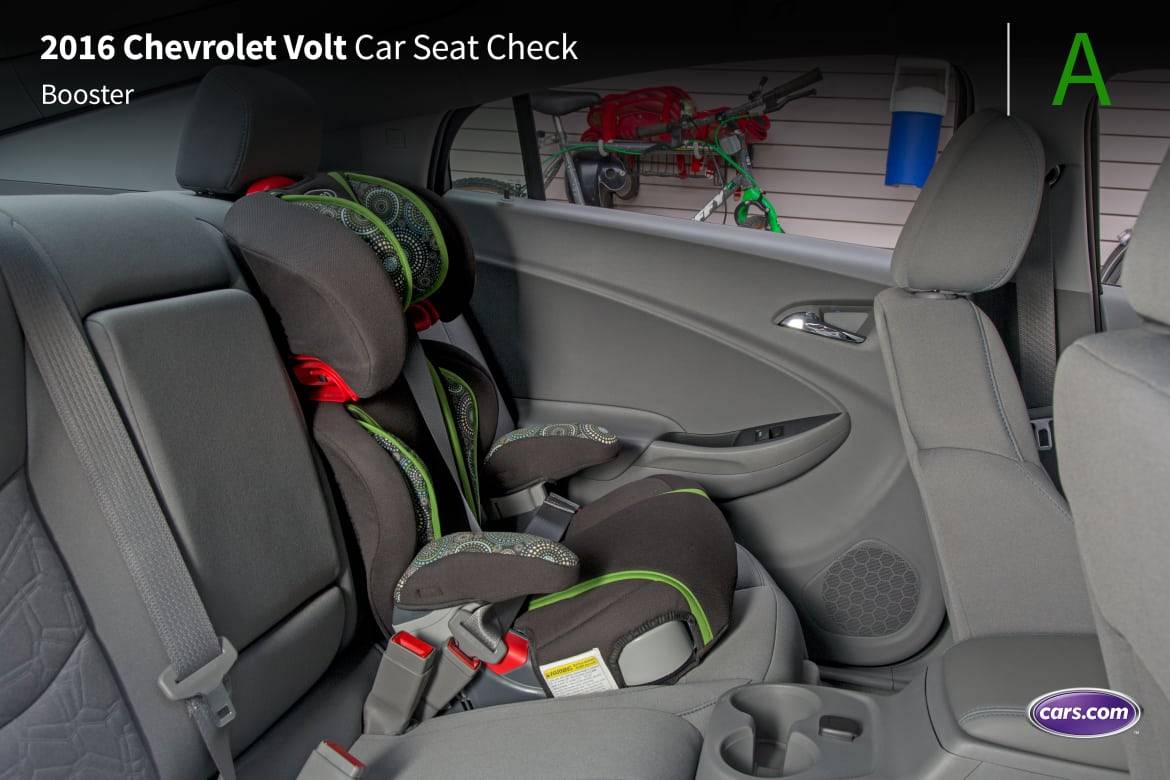







Grading Scale
A: Plenty of room for the car seat and the child; doesn’t impact driver or front-passenger legroom. Easy to find and connect to Latch and tether anchors. No fit issues involving head restraint or seat contouring. Easy access to the third row.
B: Plenty of room. One fit or connection issue. Some problems accessing third row when available.
C: Marginal room. Two fit or connection issues. Difficult to access third row when available.
D: Insufficient room. Two or more fit or connection issues.
F: Does not fit or is unsafe.
About Cars.com’s Car Seat Checks
Editors Jennifer Geiger, Jennifer Newman and Matt Schmitz are certified child safety seat installation technicians.
For the Car Seat Check, we use a Graco SnugRide Classic Connect 30 infant-safety seat, a Britax Marathon convertible seat and Graco TurboBooster seat. The front seats are adjusted for a 6-foot driver and a shorter passenger. The three child seats are installed in the second row. The booster seat sits behind the driver’s seat, and the infant and convertible seats are installed behind the front passenger seat.
We also install the forward-facing convertible in the second row’s middle seat with the booster and infant seat in the outboard seats to see if three car seats will fit; a child sitting in the booster seat must be able to reach the seat belt buckle. If there’s a third row, we install the booster seat and a forward-facing convertible. To learn more about how we conduct our Car Seat Checks, go here.
Parents should also remember that they can use the Latch system or a seat belt to install a car seat, and that Latch anchors have a weight limit of 65 pounds, including the weight of the child and the weight of the seat itself.

News Editor Jennifer Geiger joined the automotive industry in 2003, much to the delight of her Corvette-obsessed dad. Jennifer is an expert reviewer, certified car-seat technician and mom of three. She wears a lot of hats — many of them while driving a minivan.
Featured stories










